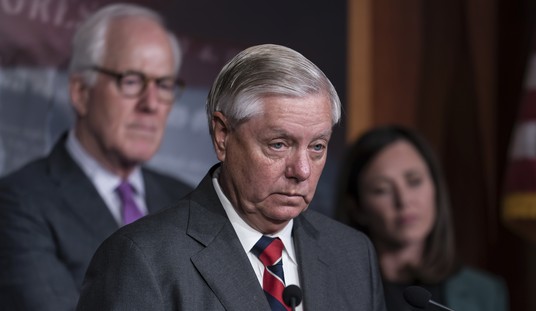After showing a near deadlock for the last month and with only ten days to go before the big Brexit referendum, the Leave faction seems to have opened up their first substantial lead. The Guardian provides the new numbers, and while not massive, it’s the first real shift we’ve seen in this direction.
Support for leaving the EU is strengthening, with phone and online surveys reporting a six-point lead, according to a pair of Guardian/ICM polls. Leave now enjoys a 53%-47% advantage once “don’t knows” are excluded, according to research conducted over the weekend, compared with a 52%-48% split reported by ICM a fortnight ago.
The figures will make grim reading for David Cameron, George Osborne and the Labour party. They follow a fortnight in which immigration became the dominant issue in the referendum campaign, with the publication of official figures showing that net migration had risen to a near-record 333,000 in 2015.
A separate set of numbers released by Brexit backing Opinium Poll shows Brexit with a 19 point lead. That would be a shocker indeed, but we’re told there’s a bit of bias built into that one so the actual numbers probably fall somewhere in between.
The British press isn’t making any bones about it or pretending that there is some nuanced set of factors contributing to the divide. This is a battle over immigration now, with too much of the public being fed up with the government’s failure to get a handle on the flood of incoming immigrants and the difficulties they have posed. When the new immigration figures came out – both legal and illegal – the undecided vote in Great Britain seemed to shift away from “Bremain” (as they’re calling it) and toward leaving the EU.
Andrew Stuttford at National Review has a hint at what may be driving the shift at this particular time.
One precedent that Remainers will be looking to for reassurance is the surge in support for Scottish independence a week or so before the Scots went to the polls. There are various reasons why that lead then evaporated, but one of them was the ‘vow’ by the three main UK party leaders promising to give the Scottish Parliament increased powers and (yet more) resources.
The problem, however, is that the only credible ‘vow’ in this case would have to come from the leaderships of the other 27 EU countries. That’s not going to happen. Remember too that the 27 had the chance to offer the UK a real deal in Brussels earlier this year. They did not, partly because the EU’s legal structure makes it very difficult to do so.
As Andrew reminds us, it’s far too early for the Brexit supporters to get their hopes up. The bid for Scottish independence last year showed a similar surge in the polls during the final weeks only to go down to defeat. True, the UK leadership sensed some blood in the water and began making promises to win the Scots back over at the eleventh hour (an option not available here) but it also spoke to the unreliability of polling data across the pond on tight, hotly contested questions.
I would note one other difference between the two situations. Scotland has been part of the United Kingdom for a very long time now and despite their notorious independent streak, breaking away would mean abandoning a system which has been in place for generations. The EU is still something which is very new in relative terms and was never as broadly accepted. (See the fact that the UK is still on their own currency rather than surrendering to the Euro.) The Scots may have gotten cold feet at the last minute, but I’m not sure this general referendum will see a similar reconsideration at the last moment.
Still, Stuttford is predicting that Brexit will fail in the end, if only by a slender margin. I’m not so sure. It will be a tight vote either way, but with no sign of an end to the border crisis in sight, I’m getting the sense that the people may just vote to take their chips and go home.








Join the conversation as a VIP Member